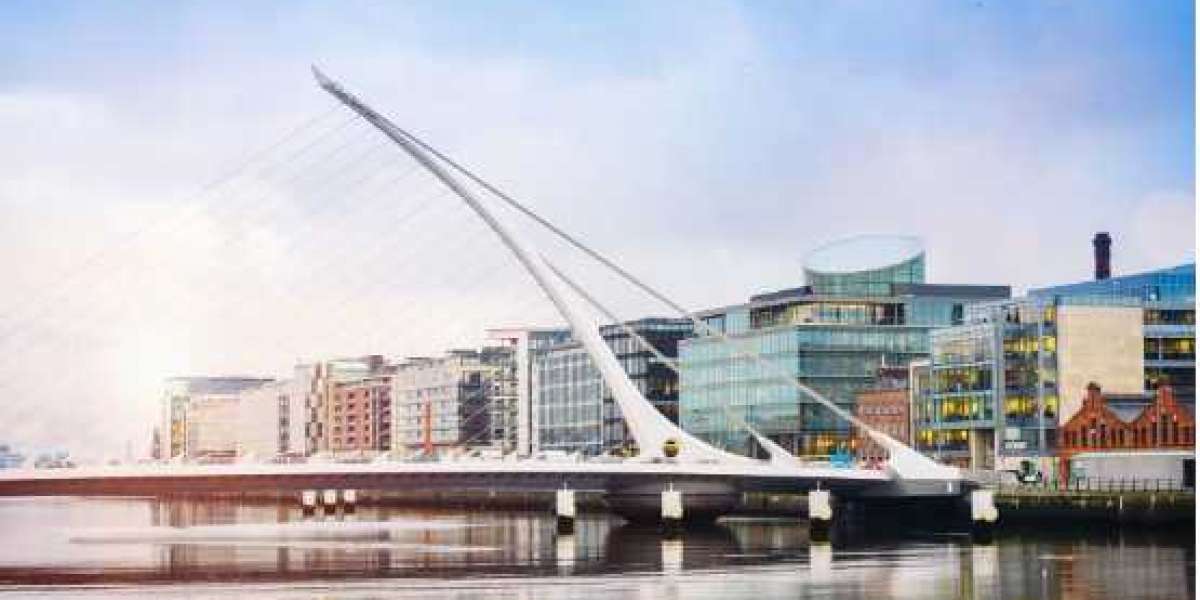On the Emerald Isle, residents are known for their warm hospitality and command a strong command of the English language. The country has one of the highest standards of living in Europe, and as a result of its advantageous geographical location, as well as its low rates of corporation tax, an impressive number of multinational corporations have established their European headquarters in the country. This has resulted in a wealth of opportunities being made available in the country.
Working in the country, which is well-known for its history and folklore, will give you the opportunity to take advantage of everything that the country's verdant landscapes and bustling cities have to offer, not to mention the chance to enjoy a Guinness or two.
Job market in Ireland
On the job market, the dominant player is the service sector. Opportunities can be found in a number of major industries, including the expanding technology sector, which has a high demand for IT workers. Additionally, opportunities can be found in the hospitality and tourism industry, which is in need of both skilled and casual workers as a result of Ireland's growing popularity as a tourist destination.
POPULAR GRADUATE JOBS
- Beverages and brewing
- Chemicals
- Computer hardware and software
- Food products
- Medical devices and pharmaceuticals
The country is also home to several multinational companies, including:
- Apple
- Facebook (Meta)
- Microsoft
- Ryanair
There is a lot of competition for skilled jobs, but if you have relevant work experience and qualifications from a third-level institution, your chances of finding employment will increase. The larger cities and towns in Ireland, such as Cork, Dublin, and Galway, will typically have more employment opportunities available. Although it is well known that Dublin is a relatively expensive city, the cost of living in Dublin is significantly lower than the cost of living in other major European cities such as Copenhagen, London, Paris, and Zurich.
Try looking for employment opportunities at:
Skill shortages
The Irish economy has skills shortages in a number of areas including:
- Business and finance - accountants, business intelligence analysts, financial advisers, risk and compliance professionals
- Engineering - biomedical engineers, chemical engineers, electrical engineers, energy engineers
- IT - app developers, data analysts, software developers, IT support specialists, programmers
- Healthcare - doctors, nurses, pharmacists, opticians, radiologists, health managers and directors
- Hospitality - chefs
- Natural and social science professionals - scientists in food manufacturing and medical laboratory scientists.

Where to look for jobs in Ireland
You are able to initiate the application process for jobs in Ireland prior to traveling there. It is not necessary for you to have a job lined up before you arrive in the country; however, doing research, searching, and applying for jobs in your home country may provide you with a head start in your search for employment.
The application and interview procedures are very much like those in the United Kingdom. You will look for job openings online, in the press, and through your networks and contacts, and you will apply for positions by submitting either your curriculum vitae and a cover letter or an online application form. In the event that your application is successful, you might be asked to participate in a more formal interview.
There may be more than one stage of the interview. Some recruiters will start the process by offering you a phone interview, and if that goes well, you might then receive an invitation to an in-person meeting. For some jobs, you might also need to do well on an evaluation day or at an evaluation center.
Your curriculum vitae should be between one and two pages long; if English is not your first language, you should indicate your level of English proficiency and provide information about any other languages you are fluent in.
Summer jobs
Because the tourism industry in this country is so active during the summer, finding temporary or part-time work shouldn't be too difficult. Again, the likelihood of landing such roles will be better in the larger towns and cities where you seek employment.
It's possible to find temporary work in a wide variety of fields, from hospitality and teaching to promotion and housekeeping.
Visit the Summer Jobs section of jobs.ie to look for summer and seasonal work in Ireland.
Giving back to the community is another fantastic way to enhance your resume and demonstrate to potential employers that you are committed to furthering your education and professional development. People all over the country who are interested in volunteering can get assistance from Volunteer Ireland, which is the only national volunteering organization in Ireland.
Before committing yourself to a program, you should make sure that you have done extensive research on all of the opportunities for volunteering and that you have always checked the terms and conditions.
Teaching jobs
People who want to improve their English often travel to Ireland because of its reputation as a good place to do so. Language schools for profit, both public and private schools, and educational institutions of higher learning are examples of common types of employers.
The majority of English as a foreign language (EFL) schools in Ireland are privately run, and the majority of these schools can be found in or around Dublin. However, employment opportunities can also be found in smaller cities and towns such as Cork and Galway.
The Accreditation and Coordination of English Language Services (ACELS) is the national body responsible for the development and management of English language teaching organizations across the country. It was established to fulfill this role. Visit the ACELS - Schools page to conduct a search for schools.
If you want to work as an English Language Teacher (ELT) in Ireland, the ACELS requires that you have a Bachelor's degree in addition to a qualification that is recognized as an ELT qualification. These qualifications include the following:
Online ELT and i-to-i ELT qualifications are not recognised in Ireland.
To search for ELT jobs in the country see ELT Ireland Jobs Board.
Internships
Because of the high level of competition in the Irish labor market, you will have a better chance of securing a position in Ireland if you have relevant work experience under your belt.
You could make individual inquiries to businesses within the sector in which you are interested in working to determine whether or not they participate in a program by inquiring about it. Alternately, there are a variety of services available to assist individuals in securing work experience, such as the following:
- Careersportal.ie
- Equipeople - Irish Agricultural Work Experience
- Gradireland
- Intern Group
- InternshipsIreland
Internships and summer work placements for students can also be arranged by:
- AIESEC UK - for students and recent graduates
- IAESTE UK - for science, engineering and applied arts students.
Irish visas
Citizens of the United Kingdom and other EU countries do not require a visa to enter Ireland. If you are a citizen of a country that is not part of the European Union or an international citizen, you should apply for a work visa through the Irish Nationalization and Immigration Service online if you want to work in the country.
Citizens of the United Kingdom, the European Union, the European Economic Area (EEA), and Switzerland are eligible to work in Ireland without the need for an employment permit, and they will be given the same consideration as Irish citizens when applying for jobs.
If you are coming from a country that is not a member of the EU, you will need to obtain a work permit before you arrive in Ireland in order to be able to find work there. It's possible that you won't need a visa at all if you're planning on moving in with relatives. There are nine distinct kinds of permits, including a general permit and a critical skills permit. Among these permits is the general permit.

Language requirements
Irish, which is also known as Gaelic or Gaeilge, and English are both recognized as official languages in the Republic of Ireland; however, the majority of the population speaks English as their first language.
Irish is a significant component of the nation's history as well as its identity, despite the fact that it is not a commonly used language.
Even if you only know a little bit of Irish, having good English skills will be enough to qualify you for the majority of jobs.
It is possible that you will be required to provide evidence of your level of English proficiency when applying for jobs in Ireland if English is not your first language and you will be working there.
How to describe your experience and skills to potential employers
Because the higher education systems in Ireland and the United Kingdom are directly comparable, it is likely that Irish employers will acknowledge and accept your British bachelor's degree, master's degree, or doctoral degree if you move there with the intention of finding work there. In the event that you are unsure, it is always a good idea to check with potential employers before submitting an application.
Check out ENIC-NARIC to learn more about how qualifications are recognized in the workplace.
How the labor market in Ireland actually works.
Your typical workweek shouldn't go over forty-eight hours. As an employee, you are eligible for paid time off, sick leave, holidays, maternity leave, and parental leave, in addition to the standard four weeks of vacation per year.
An adult with several years of work experience is entitled to an hourly wage of €10.50 (or £8.88). The government also has plans to introduce a living wage that is set at 60% of the median wage by the year 2026, and while the national minimum wage will continue to increase in the meantime, the government will continue to increase the minimum wage.
There are nine days that are recognized nationally as holidays in Ireland. These are as follows:
- New Year's Day (1 January)
- St Patrick's Day (17 March)
- Easter Monday
- The first Monday in May, June and August
- Last Monday in October
- Christmas Day (25 December)
- St Stephen's Day (26 December).
You will be required to pay taxes on any income you earn. This will be deducted from your wages by your employer, and the amount that you are responsible for paying will vary depending on how much money you make. The initial portion of your income, up to a certain amount, is subject to taxation at the standard rate of tax, which is equal to twenty percent of your taxable income. This threshold is raised for married couples, and it rises even further when there are two incomes involved.
Visit the Citizens Information website and look up "How your income tax is calculated" if you want to learn more about the tax system in Ireland.
Find out more
- Discover what it's like to study in Ireland.




Eunice Aragah 5 w
Nice